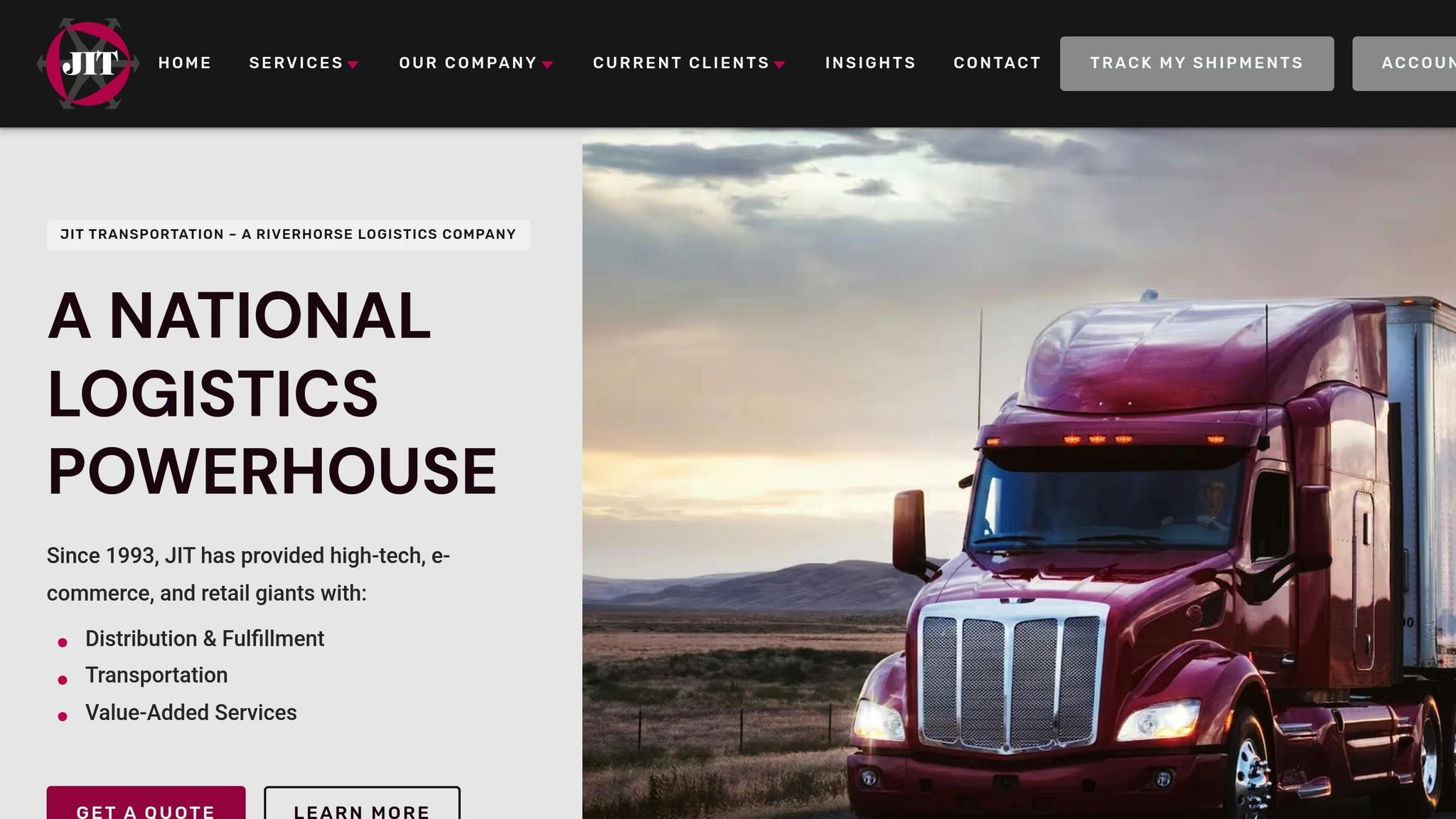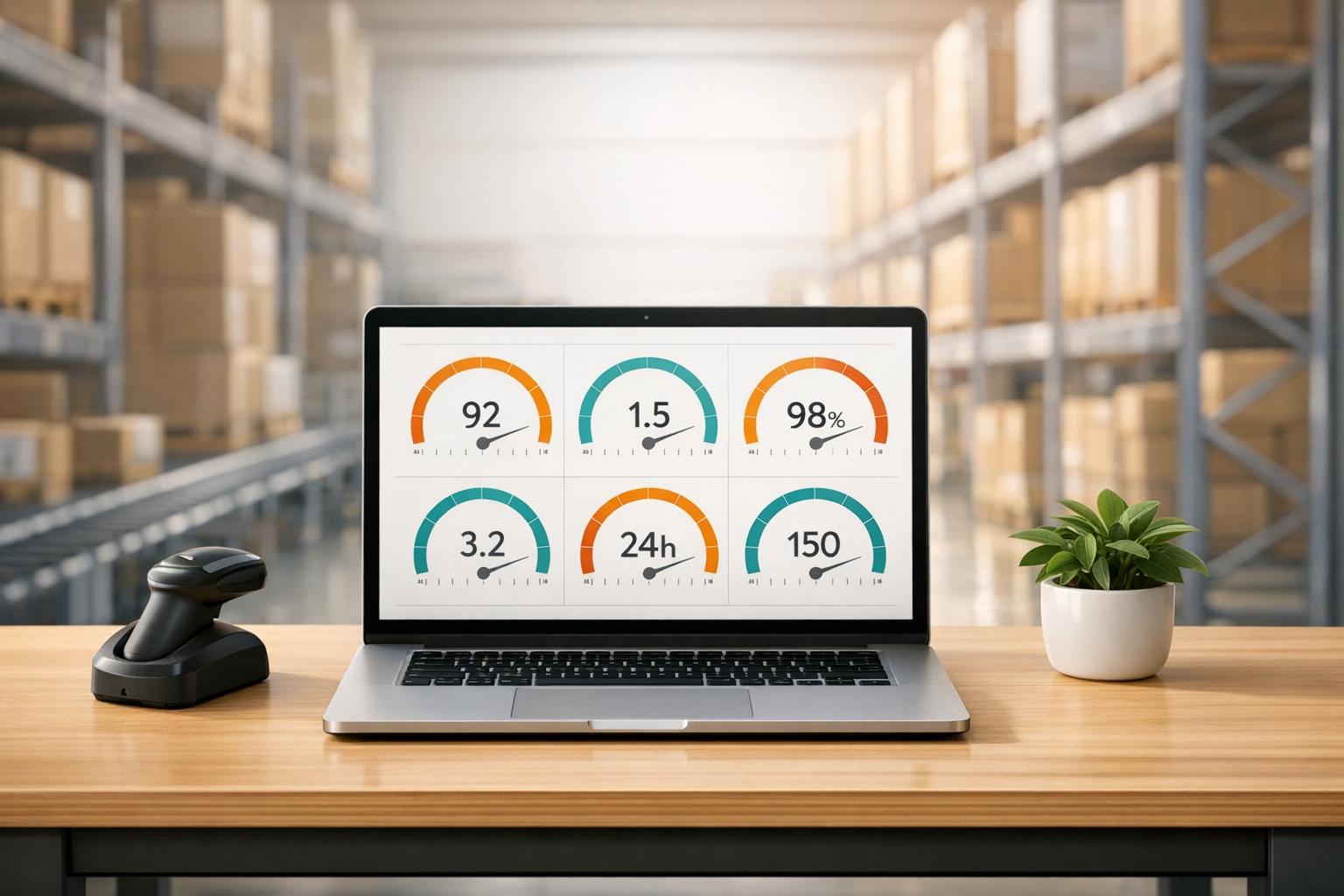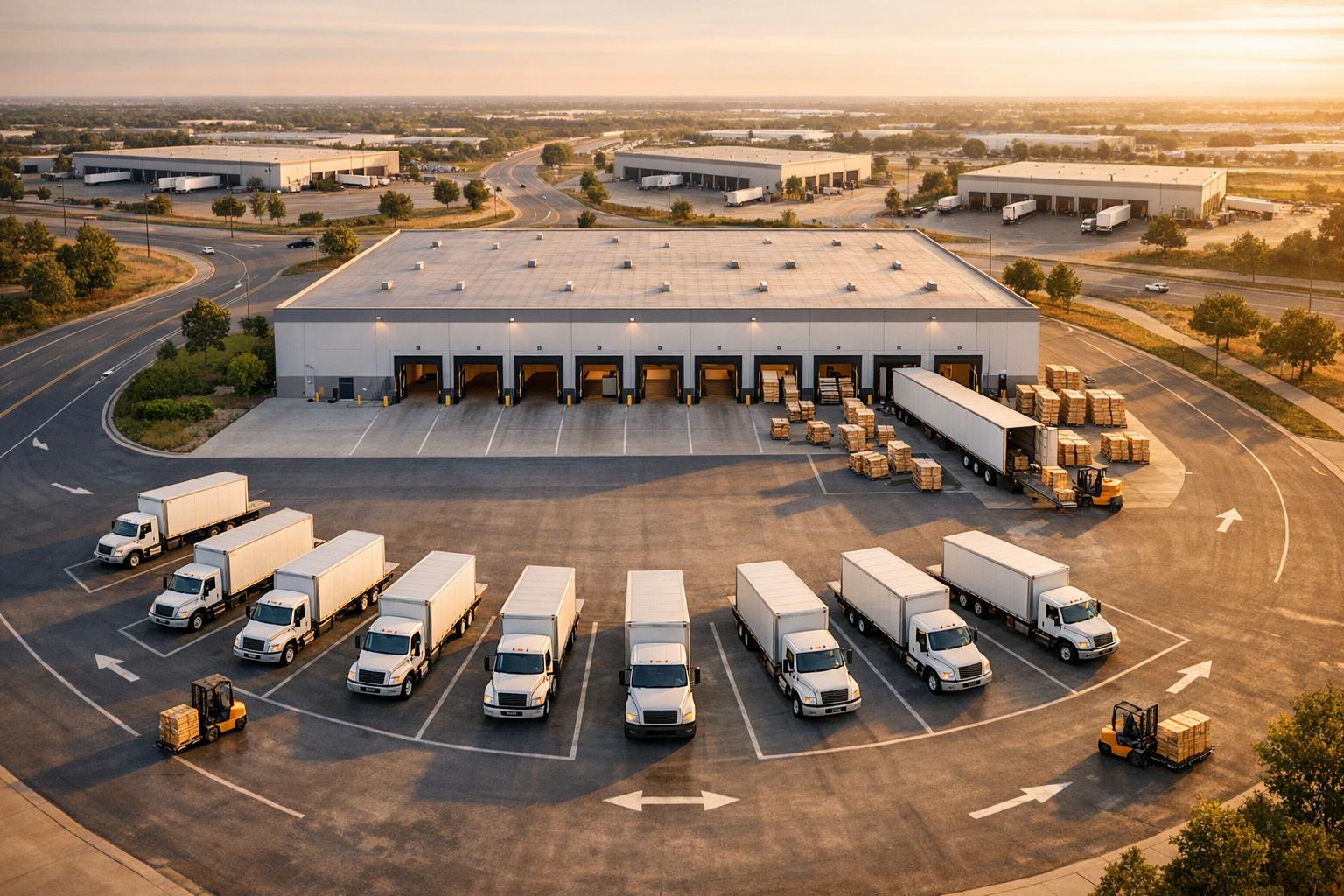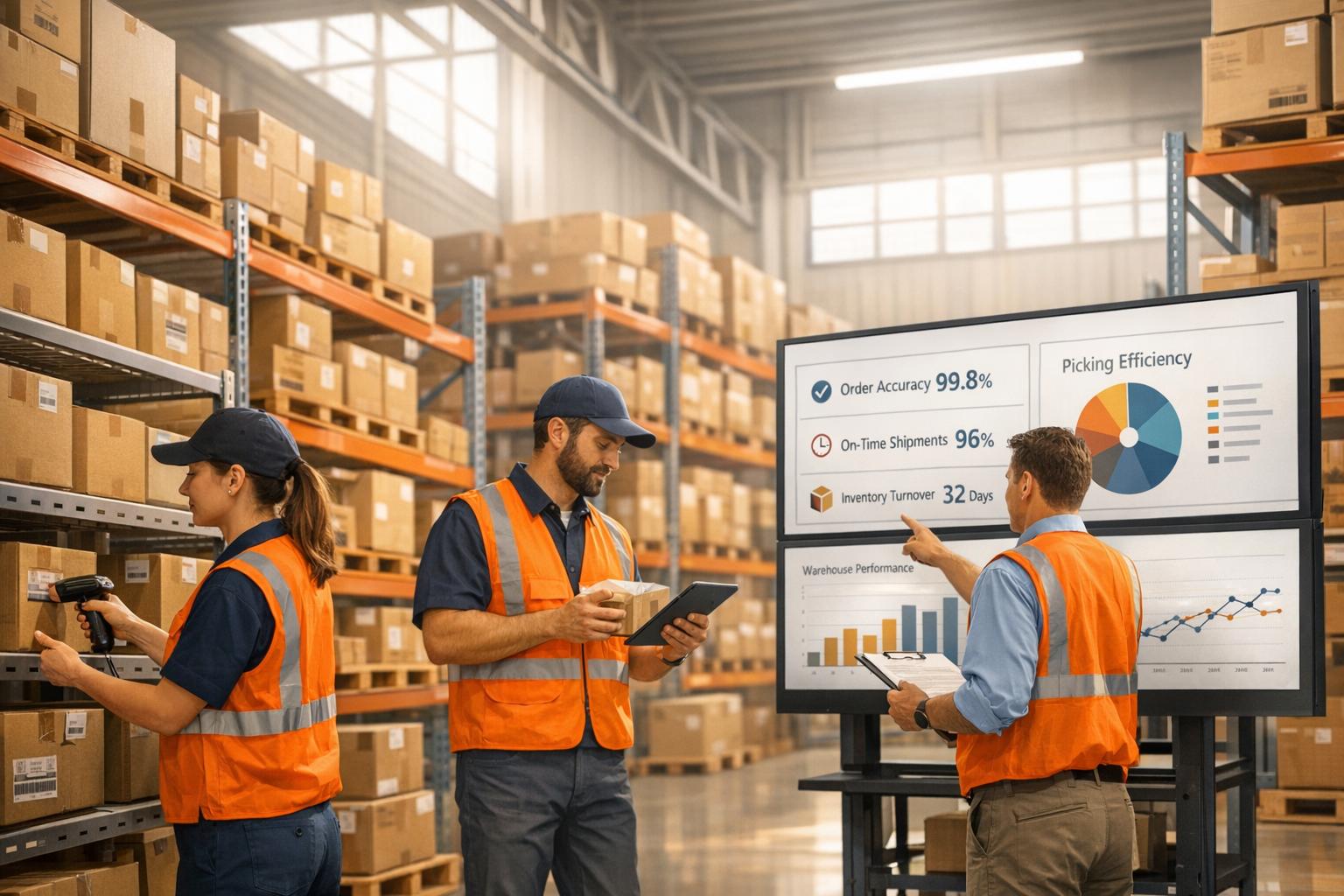Scalable Fulfillment Solutions for Growing Brands

Growing brands often face fulfillment challenges as they scale. Order spikes, complex inventory, and high customer expectations can overwhelm in-house operations. This is where third-party logistics (3PL) providers come in. They offer flexible solutions, nationwide networks, and expert services to handle demand surges, reduce costs, and improve delivery speeds.
Key Takeaways:
- In-House Fulfillment Risks: High fixed costs, limited space, and operational disruptions.
-
3PL Benefits:
- Handle demand spikes without extra overhead.
- Use nationwide warehouses for faster delivery.
- Leverage expertise in logistics and inventory management.
- Technology Role: Advanced systems like Warehouse Management Systems (WMS) and real-time tracking improve efficiency and visibility.
- Value-Added Services: Custom packaging, kitting, and returns management enhance customer experience.
JIT Transportation exemplifies a reliable 3PL partner with 14 warehouses, a robust transportation network, and tailored services to support growing brands. By outsourcing fulfillment, businesses can focus on core activities like product development and marketing while ensuring efficient operations.
How 3PL Solutions Enable Scalable Fulfillment
Third-party logistics (3PL) providers have completely changed how brands handle fulfillment, especially when scaling to meet growing demands. Instead of investing heavily in warehouses, hiring staff, and managing the complexities of logistics, businesses can tap into the infrastructure and expertise that 3PL partners already have in place. This approach eliminates the need for costly upfront investments while offering the flexibility to adapt to fluctuating demands.
A key advantage of working with a 3PL is their ability to adjust resources in real time. Whether it's a seasonal surge or a sudden spike in demand, a reliable 3PL can handle it seamlessly by leveraging their workforce, warehouse space, and efficient operational systems. On-demand fulfillment solutions take this to the next level, offering even more flexibility.
The Flexibility of On-Demand Fulfillment
On-demand fulfillment allows brands to pay only for the resources they actually use. This model is a game changer because it eliminates the need to maintain fixed capacity during slower periods while ensuring there's enough support during peak times. For example, during high-demand events like holiday sales, 3PL providers can bring in extra staff to handle the workload. Once the rush is over, they scale back, saving brands from unnecessary expenses.
The same principle applies to warehouse space. Instead of committing to long-term leases, brands can use only the storage they need at any given time. This flexibility not only reduces costs but frees up funds that can be reinvested in growth opportunities.
Benefits of a Nationwide Fulfillment Network
A nationwide fulfillment network gives brands a significant edge by allowing them to ship orders from multiple locations strategically placed across the country. This setup reduces transit times, ensuring faster deliveries to customers, and provides a safety net if one facility experiences disruptions. Additionally, it simplifies the process of entering new markets. Instead of building local infrastructure, brands can test regional demand using the 3PL’s existing network.
Streamlining Operations Through 3PL Expertise
Beyond their infrastructure, 3PL providers bring a wealth of operational expertise that many brands may lack. They excel in areas like warehouse management, shipping regulations, inventory optimization, and supply chain coordination. This specialized knowledge helps streamline operations, reduce errors, and improve overall efficiency.
3PL partners also handle the heavy lifting when it comes to staffing, training, and technology integration. With tools like advanced warehouse management systems, real-time tracking, and compliance solutions, they ensure that orders are processed smoothly and accurately. Their ongoing efforts to refine processes further enhance efficiency, allowing brands to focus on growth without getting bogged down by logistical challenges.
The Role of Technology in Scalable Fulfillment
Technology plays a key role in making fulfillment operations more efficient, enabling brands to grow without compromising accuracy. Advanced systems simplify every step of the order process - from placement to delivery - helping businesses overcome challenges that come with scaling. One of the most important aspects of this technological support is the integration of Warehouse Management Systems (WMS) with real-time tracking.
Warehouse Management Systems and Real-Time Tracking
As businesses aim to scale their operations, having advanced tools for oversight becomes essential. This is where Warehouse Management Systems (WMS) come in. These systems manage everything from receiving inventory to shipping orders, ensuring smooth coordination at every stage. When WMS is combined with real-time tracking, it offers continuous updates on the location and condition of goods throughout the supply chain. This level of visibility allows businesses to keep tabs on their inventory at all times, improving overall supply chain transparency.
Real-time tracking provides actionable insights that help businesses address potential problems before they escalate. It also ensures accurate, up-to-date stock information, which is crucial when integrating with third-party logistics (3PL) providers. This seamless data visibility enhances collaboration and ensures smooth operations across the board.
Value-Added Services for Evolving Brand Needs
As brands grow and venture into new markets, their fulfillment needs naturally become more intricate. Basic logistics services might not cut it anymore. This is where value-added services from third-party logistics (3PL) providers step in, offering tailored solutions that go beyond standard warehousing and transportation. These services help brands stand out in competitive markets while ensuring customer satisfaction by bridging the gap between basic logistics and personalized fulfillment strategies.
Tailored Solutions for Unique Requirements
When brands expand, their fulfillment operations must evolve beyond simple storage to address specific product needs. Different items demand different handling methods, and maintaining quality while meeting customer expectations becomes a priority. To address these challenges, modern 3PL providers offer a variety of services tailored to unique requirements:
- Pick & Pack: These services let brands customize packaging and presentation without investing in additional equipment or training. This not only enhances the unboxing experience for customers but also ensures delicate items are handled with care.
- Kitting & Assembly: Whether bundling products into promotional packages or creating seasonal offerings, these services allow brands to launch new combinations without setting up in-house assembly processes.
- White Glove Service: For products that require extra care, white glove options provide meticulous attention, from careful packaging to premium shipping solutions, ensuring the item arrives in perfect condition.
- Quality Assurance: Comprehensive quality checks help maintain high standards, especially for products like electronics or software, where precision and performance are critical.
Handling Seasonal and Demand Spikes
Unpredictable demand surges - whether during the holidays, product launches, or big marketing campaigns - can overwhelm in-house operations. Value-added services from 3PL providers help brands manage these peaks seamlessly:
- Vendor-Managed Inventory (VMI): With VMI, the 3PL provider monitors inventory levels and automatically reorders stock based on pre-set thresholds, preventing stockouts during high-demand periods.
- Pool Distribution and Consolidations: By strategically positioning inventory closer to end customers, brands can reduce shipping times and costs, ensuring faster deliveries and happier customers even during peak seasons.
Enhancing Customer Experience with Specialized Services
Value-added services don’t just streamline operations - they also elevate the customer experience:
- Returns Management (RMA): Efficient returns management ensures returned items are inspected, refunds or exchanges are processed quickly, and sellable products are reintegrated into inventory without delay.
- ERP Integration: Integrating with enterprise resource planning (ERP) systems gives customer service teams real-time access to order statuses, inventory levels, and shipping updates. This allows them to address customer inquiries promptly and accurately.
sbb-itb-eafa320
JIT Transportation: Scalable Solutions in Action

JIT Transportation tackles the challenges of scalable fulfillment by offering logistics solutions that prioritize results. Designed with high-growth brands in mind, their services combine infrastructure and expertise to meet evolving business demands while maintaining reliability.
Custom 3PL Solutions Backed by Nationwide Infrastructure
At the core of JIT Transportation's fulfillment strategy is a robust infrastructure. With 14 warehouses across the U.S. covering over 2.5 million square feet, they provide the reach and capacity needed to serve customers efficiently. Their transportation network includes over 120 trucks, 300 trailers, and partnerships with more than 500 carriers, ensuring dependable delivery - even during peak seasons. This extensive setup allows for faster, nationwide delivery and provides operational backup when needed.
One standout feature is their flexible service model. They offer both fixed and variable arrangements, giving brands the ability to scale up during busy seasons, explore new markets, or manage growth without overextending resources. Their strong West Coast presence, supported by six strategically located distribution centers near major ports and technology hubs, helps minimize transit times, reduce shipping costs, and improve customer satisfaction.
Advanced Technology and Value-Added Services
JIT Transportation leverages advanced technology to provide real-time visibility and operational efficiency. Their systems integrate seamlessly with ERP platforms, enabling smooth data sharing. This connectivity ensures customer service teams can quickly access critical information like order statuses, inventory levels, and shipping updates, allowing for faster and more accurate responses.
Their platform also consolidates orders from multiple sales channels, streamlining the fulfillment process. Beyond standard logistics, JIT offers a range of value-added services. Pick-and-pack operations allow for custom packaging without additional investment, while kitting and assembly services simplify the creation of promotional bundles or seasonal products. For items requiring extra attention, white glove services ensure careful handling, and testing and quality assurance maintain product standards. These technological and service capabilities provide brands with the tools they need to scale effectively and efficiently.
Supporting Growth with Flexible and Reliable Fulfillment
JIT Transportation’s adaptable approach is built to support growth. Their infrastructure adjusts to fluctuating client needs, whether it’s handling seasonal demand, launching new products, or managing steady expansion. This flexibility delivers on the promise of scalable operations.
Key features like Vendor Managed Inventory (VMI) automate stock management by reordering items when inventory dips below preset levels. Pool distribution strategically positions inventory closer to customers, while efficient returns management ensures quick processing of returned products. Together, these services create a fulfillment ecosystem that evolves with brands, ensuring both operational efficiency and exceptional customer service during periods of rapid growth.
Conclusion: Choosing Scalable Fulfillment Solutions for Growth
When it comes to fulfillment, brands face a pivotal decision: handle it in-house or partner with a 3PL (third-party logistics provider). Partnering with a 3PL offers immediate access to a nationwide network, cutting-edge technology, and specialized expertise - all without the hefty investment and complexity that come with building internal capabilities. On the other hand, managing fulfillment in-house often pulls resources away from core business priorities and increases operational risks. Modern 3PLs, however, provide the adaptability needed for growth, adjusting to evolving demands without requiring additional capital. For brands looking to scale effectively, outsourcing fulfillment becomes a smart, strategic move.
Key Takeaways for Growing Brands
For sustained growth, outsourcing fulfillment operations strategically can make all the difference. JIT Transportation exemplifies how a well-rounded 3PL solution can address challenges like infrastructure limitations, technology gaps, and operational bottlenecks.
- Strategic infrastructure: With well-placed warehouses and extensive transportation networks, 3PLs enable faster delivery, reduced costs, and improved customer satisfaction.
- Advanced technology: Real-time tracking, automated inventory systems, and seamless multi-channel integration turn fulfillment into a competitive edge, empowering brands to make smarter decisions.
- Value-added services: Features like custom packaging, kitting, testing, and specialized handling allow brands to deliver standout customer experiences without the need for in-house development - especially when launching new products or entering fresh markets.
FAQs
How can a 3PL provider help my brand manage seasonal demand more effectively?
A third-party logistics (3PL) provider can be a game-changer for managing seasonal demand. They offer flexible warehousing options and on-demand staffing, making it easier to adjust operations when demand fluctuates. By using real-time inventory tracking and advanced analytics, they help you maintain just the right stock levels - avoiding both overstocking and shortages.
Thanks to their nationwide logistics networks and streamlined delivery systems, 3PLs ensure your orders are fulfilled on time, even during the busiest seasons. By taking care of these operational challenges, they free you up to focus on growing your business while keeping your customers happy.
What are the benefits of using a nationwide fulfillment network for growing brands?
A nationwide fulfillment network ensures quicker delivery times by cutting down the distance between warehouses and your customers. This means orders arrive faster, which can lead to happier customers and stronger loyalty to your brand.
It also helps reduce transportation costs by streamlining freight routes and shortening shipping distances. For growing businesses, this translates to a logistics setup that's not only more cost-efficient but also ready to expand as your customer base grows.
By tapping into a network of strategically placed facilities, brands gain greater adaptability to meet shifting market demands, keeping fulfillment operations smooth and dependable.
How do technologies like Warehouse Management Systems (WMS) and real-time tracking improve fulfillment operations?
Technologies such as Warehouse Management Systems (WMS) and real-time tracking are game-changers when it comes to making fulfillment operations more efficient. They give businesses precise, up-to-the-minute updates on inventory levels and order statuses, which helps cut down on mistakes and keeps things running smoothly.
These systems also maximize how warehouse space is used, speed up order processing, and improve how resources are allocated. By using tools like these, businesses can expand their fulfillment capabilities with more confidence and consistency, leading to a more reliable supply chain and happier customers.
Related Blog Posts
Related Articles

JIT Replenishment Metrics to Track in E-commerce

How 3PLs Handle Pool Distribution

